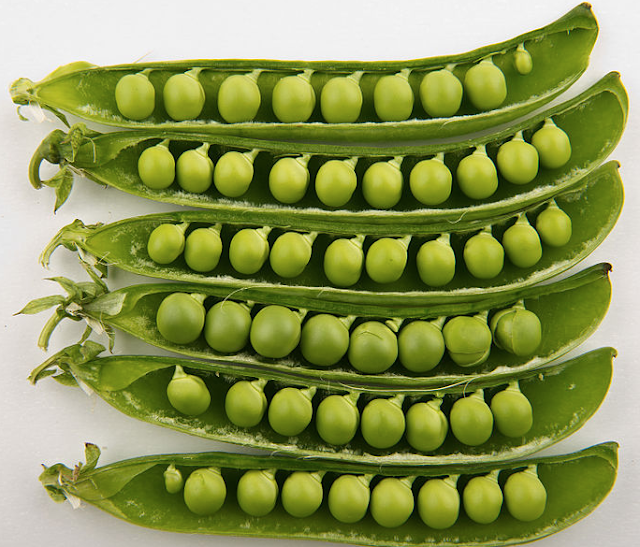GMO's: Lies & Damned Lies
Lies & Damned Lies Or Maybe Just Half Truths
These days there's a fairly well publicized debate occurring in the scientific community and the media about the risks and benefits of genetically modified organisms or GMO's. A genetically modified organism is one that has been altered to produce characteristics that are desirable to human. For example, making a particular plant more resistant to disease or one that produces fruits that are larger and sweeter.
Right now, we are taking an open minded approach to GMO's and weighing the evidence on both sides. That said, there does seem to be growing evidence that that today's GMO's may not be as safe as was initially claimed and that the use of GMO's may may have unintended consequences for the environment.
One Claim for GMO's We Really Dislike
Supporters of modern GMO's make a variety of claims regarding their safety. One claim that we've seen over and over again is intended to neutralize criticism of modern GMO's by asserting that humans have been doing "genetic engineering" by other means for thousands of years and that modern GMO's are merely a continuation of these longstanding practices. Below is a fairly typical argument made by Dr. Christopher Baird who is on the faculty at the University of Massachusetts at Lowell:
Organic-food purists may think of words like “unnatural”, “unhealthy”, and “toxic” when confronted with genetically-modified food. But the fact is that all of our agricultural food has been genetically altered through thousands of years of selective breeding. It does not take a modern biotechnology lab to genetically optimize food for human consumption. All it takes is a farmer choosing the seeds from the juiciest apples, or the hen that lays the most eggs as the progenitor for the next generation.
Misleading At Best
We're calling-out this particular line of reasoning as misleading and unhelpful to the debate. The argument glosses over the fact that the scope and scale of the human intervention is vastly different today than it was in the past.
In the old days, farmers selected for traits that were naturally occurring variations. If a particular plant was found that exhibited a trait that was desirable it was used to pollinate the next generation of plants. The best of these was then used to pollinate the next generation etc. and over time the trait was made more prominent.
For example, English Peas, or Sweet Peas, have their origins in the Eastern Mediterranean in the area that is modern day Syria. These early peas spread to Europe during the middle ages but did not become really popular until the 18th century when amateur plant breeder Thomas Edward Knight developed sweet tasting peas as a result of selective breeding for increased sugar in the pea seeds.
 |
| English Peas in The Pod. Source: Wikipedia |
Again, this type of "genetic modification" involves selecting for a naturally occurring variation in the plant. By contrast, modern GMO's are often developed by introducing genes into plants from other species. For example, Bt-Corn is a variety of corn that is resistant to harmful insects. It was created by adding genes to corn from a bacteria that produces a toxin that is poisonous to certain insect species. If an insect eats Bt-Corn, it absorbs the toxin and dies; as a result, the corn becomes resistant to these insects.
 |
| This Corn Borer is One Insect That Is Killed by Bt-Corn. Photo: Wikipedia |
While it's true that adding genes from other species doesn't necessarily make the new plant harmful to humans, it's deceitful to imply that today's genetic engineering is really just an extension of what we've done for thousands of years. Today's genetic engineering is a stepwise change in technology that fundamentally alters the game. Consider the following analogies:
- The computer wasn't just an improvement on the calculator. It vastly increased the speed and accuracy of our ability to calculate. The computational power of computers made it possible to put a man on the moon, to create new medical devices that have extended our lives, led to the internet and the changes we see everyday in our ability to communicate with others. The computer changed everything.
- The steam engine wasn't just an improvement on the horse, it fundamentally reduced the cost of of producing and transporting goods, converted rural populations to urban ones, and led to dramatically improved living standards for everyone on the planet.
- The atomic bomb wasn't just "an improvement" on the traditional mortar shell. It fundamentally changed the destructive power of warfare forever etc.
Likewise, our ability to modify the genes of living organisms isn't just an extension of what we've done in the past. We never had this much power to change the genetic composition of plants and animals. This makes the promise of genetically modified crops greater. It also makes the potential risks greater as well. Failing to acknowledge this isn't helpful.


Nicely written article. I think it really helps to explain things to people who really are unfamiliar what all these things mean. Thank you.
ReplyDelete